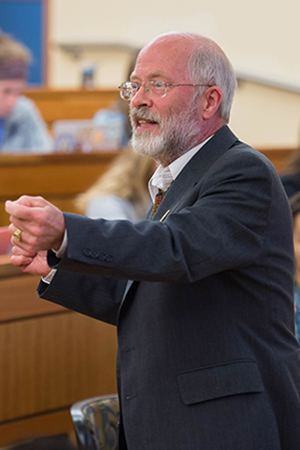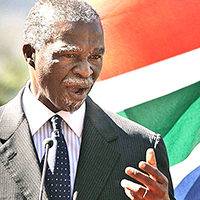 Contracts for Managers (MGMT 59000), a course taught by award-winning business law professor Cliff Fisher (below), gives undergraduates the opportunity to both research a topic and publish their findings in a peer-reviewed journal or present them at a professional conference. (Stock photo)
Contracts for Managers (MGMT 59000), a course taught by award-winning business law professor Cliff Fisher (below), gives undergraduates the opportunity to both research a topic and publish their findings in a peer-reviewed journal or present them at a professional conference. (Stock photo)
Uncommon Knowledge
Business Law course introduces undergrads to academic research
Once considered the domain of faculty and graduate students, academic research is quickly becoming a staple of Krannert’s undergraduate curriculum.
From participation in conferences and competitions through the Purdue Office of Undergraduate Research to school-specific experiential learning initiatives and individual courses, management students have numerous opportunities to apply knowledge in their chosen career field or related areas of learning.
An example is the Contracts for Managers (MGMT 59000) course taught by Cliff Fisher, a clinical professor of management and head of the Krannert School’s business law area.

“The mission of the course is to provide students with an understanding of the contract legal environment as it pertains to both for-profit and non-profit organizations,” Fisher says. “They have the opportunity to learn about a wide range of substantive rules of public law as well as understand the ethical considerations and their influence on politics and society.”
One of the key components is a research study and paper that students can submit for consideration as a conference presentation and/or journal publication. Among the standout student researchers from previous iterations of the course is Alexis Martinez, a Krannert senior studying strategy and organizational leadership who plans to attend law school and open her own practice.
With support and guidance from Fisher and co-authors Kenna Garman, a senior studying finance, and John Pairitz, a 2019 Purdue grad, Martinez presented a paper at the Society of Legal Scholars Annual Conference at the University of Central Lancashire in Preston, UK, in September 2019. Titled “A Comparative Look at Data Privacy in the European Union and United States,” the study is pending publication in the John Marshall Law Review.
“I wanted to know more about the laws protecting consumers' data because I spend a majority of my time online, so it's something that directly affects me and probably about 90% of the rest of the population,” says Martinez.
To begin the process, Fisher helped Martinez and other students navigate a research platform used in many law schools. “Learning how to filter through thousands of case law and statutes will transfer to any other course that requires research and certainly to law school if someone is considering going,” Martinez says.
Another fundamental skill acquired by Martinez and her co-researchers was teamwork. “Our team spent hours together planning, drafting, and editing our paper,” she says. “It gives you real experience on distributing assignments, giving constructive feedback, and meeting deadlines.”
Other former students with peer-reviewed research on their vitas include 3 +2 student Joshua Groh, now a second-year MBA candidate, who presented “Alleged Antitrust Violations in Collegiate Athletics” at the 8th International Conference on Restructuring of the Global Economy Conference of the Academy of Business & Retail Management in Oxford, UK, in July 2018.
The study, which he co-authored with Krannert accounting and finance major Chase Walter, was subsequently published in the International Educational Scientific Research Journal.
“Antitrust law in the United States has for many years piqued my interest for its complexity and broad impact on many parts of business,” Groh says. “I knew right away this was the broad area I was curious to dive into, but I quickly had to face the first challenge of doing research — narrowing down a broad interest area into a unique, researchable hypothesis. My course colleague Chase is a passionate sports fan and was excited to research the National Collegiate Athletics Association (NCAA), but was also struggling with determining a more specific topic. We decided to join forces and soon discovered a trove of antitrust allegations brought against the NCAA, and our specific research interest was born.”
In addition to learning about antitrust violations in college athletics, Groh took away a larger lesson about academic research in any field.
“Research can, at first, appear very daunting,” he says. “Students are first exposed to the finished product of another’s research without visibility into the incremental steps needed to achieve that goal. It begins with a curiosity, a drive to dive deeper into something that excites you. My first recommendation to students is to take it slow, focus on the curiosity, and see where the exploration journey takes you. Be deliberate and disciplined about pursuing the topic, but if you need to alter the focus part way through, do it.
“Your first research journey doesn’t have to be solo either; finding a friend to pursue a common curiosity can not only build a valuable friendship, but also make researching more fun and motivating. Completing any form of research, whether one page or a dozen, helps you grow as a human being and can launch interests which drive you toward even greater pursuits.”









